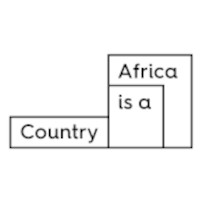To navigate multipolarity, the continent needs a common narrative that strategically mediates its conversations with China and other world powers.
Addis Ababa light rail. Image credit ITDP Africa via Flickr CC BY-NC 2.0.
With the 2024 Summit of the Forum on China-Africa Cooperation (FOCAC) fetching a commitment to a three-year funding envelope of US$51 billion, along with a promise of a million jobs from China, African leaders appear to have secured concessions from China. After all, Africa is that continent where unemployment is imploding into street protests with all sorts of implications. However, the way African leaders conduct Africa’s relations with China is disturbing.
Africa relates to China without any known continent-wide narrative of the relationship. This should disturb all stakeholders of the Africa-China relationship, including China. There is no such narrative except the shared pride among African leaders that the continent is a privileged theater of Chinese global unfolding. Is it possible a collective African narrative exists but is hidden for strategic reasons? This is possible in the context of a multipolar, post-Cold War global order. Even so, there is little to be gained from hiding a narrative because narratives and the power relations they almost always enact determine who gets what, when, and where. Self-narrativization or discourses are, therefore, not about secrecy. A global player without such self-narrative advertises itself as a player without clarity about what it wants from the system.
This is more so because neither China nor any of the actors Africa relates with comes to the table without a strategic narrative. Finding itself as a global player after achieving social transformation at a pace and scale hitherto unimaginable, China declares itself a case of a “peaceful rise,” suggesting a great power ascendancy that is not threatening the status quo. It additionally defines its approach to relations with other layers of actors in the global order to be based on a win-win narrative instead of a winner-loser binary. Applied to Africa, the win-win narrative has been a particularly appealing feature of the Chinese presence on the continent, with its invocation of a legacy of a clean colonial record and a commitment to a mutual share of prosperity and adversity.
In summary, China is not oblivious to how narratives create the reality they invoke if and when such narratives are canvassed to the consent and consensus of the audiences they are addressed to. The implication is that China, surrounded by a bodyguard of narratives, has better prospects of determining the winners and losers in its relations with other actors. China is not alone in this. The European Union loves reference to it as a normative power. With the Americans, one encounters “the city on the hill” or “the indispensable nation” narrative. Every other global player has one dominant self-understanding or another.
For Africa to be a winner, it needs a narrative of itself, one that sets the boundaries of its relationship with others, be it the European Union, the United States, China, Russia, or every other actor in the global order. Without that grand logic mediating the conversation between Africa and China, it is all about financing, infrastructure, trade, and similar issues. A coherent narrative could help Africa learn how to convert its own “centuries of humiliation” into the possibility of social transformation on any remarkable scale.
Africa’s relationship with the global powers cannot remain at the level of surface-level issues anymore. Otherwise, African leaders run the risk of unintentionally suggesting to others that they have no clarity of what the continent should be asking for from China or other players, for that matter. Yes, US$51 billion and a million jobs are not insignificant, but why is the unemployment level at such a threatening level in Africa more than any other region? Why is industrialization not a focus in the discussions so far? Is that coming at a later stage, or is it a case that such a topic is forbidden or simply a case of an issue not raised?
Without such questions, what seems to be happening is a repeat of the scenario that enabled the now defunct Jubilee 2000 Coalition and other global civil society platforms—rather than then Nigerian president Olusegun Obasanjo and his brothers, Thabo Mbeki of South Africa and Abdoulaye Wade of Senegal—to take center stage at the G8 meeting in Okinawa, Japan in 2000. The coalitions took center stage by raising debt cancellation, among other pressure tactics. No such pressures have been exerted by African leaders on the scale required. Yet, the African leaders have had the advantage of additional opportunities to mount such pressure and negotiate concessions in the light of the reinvigorated EU-Africa Partnership or the US-Africa Leaders Summit and Russia-Africa Summit.
There is no doubt that Africa needs infrastructure, financing, trade, jobs for the millions of unemployed, and lots more. But it first needs the narrative that will underpin the conversation over how to accomplish these specifics. The starting point is framing the continent’s relationship with China.






